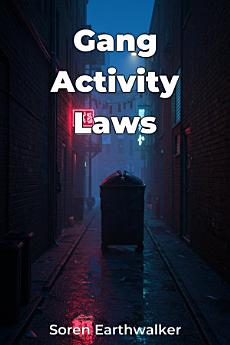Gang Activity Laws
About this ebook
The book traces the evolution of anti-gang legislation and basic criminal law principles, arguing that while existing laws offer mechanisms to combat gang crime, their application presents constitutional concerns. For instance, enhanced penalties, while intended as deterrents, raise questions about racial bias and due process.
The book progresses through an analysis of racketeering laws, conspiracy charges, and enhanced penalties, using case law and government reports to assess the effectiveness of legal strategies. Ultimately, Gang Activity Laws provides a comprehensive overview of the legal landscape surrounding gang crime, offering insights into the strengths and weaknesses of current approaches. This makes it a valuable resource for law enforcement, legal professionals, and policymakers aiming to craft effective and just anti-gang strategies, while also catering to anyone interested in understanding the legal dimensions of gang-related crime.








